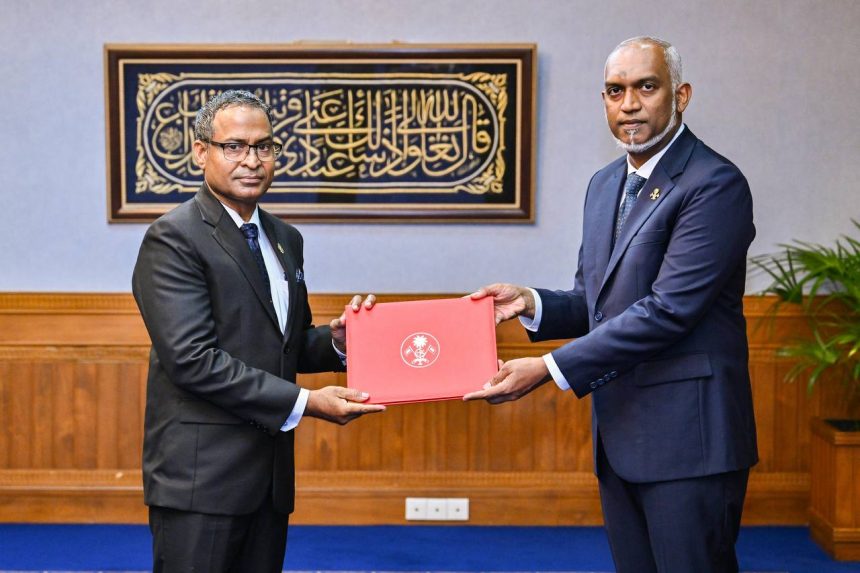In a landmark move underscoring his commitment to justice and Islamic values, President Dr. Mohamed Muizzu has appointed Ustaz Abdul Ghani Mohamed as the new Chief Justice of the Maldives. The official swearing-in ceremony took place this morning at the President’s Office, where Ustaz Abdul Ghani took the oath of office in the presence of Supreme Court Justice Hon. Ustaz Abdulla Hameed.
The appointment was made under Article 147 of the Constitution, reflecting the government’s confidence in Ustaz Abdul Ghani’s deep legal acumen and unwavering integrity. Following the oath, the new Chief Justice signed the official declaration, marking the beginning of a new era for the Maldivian judiciary.
Ustaz Abdul Ghani brings a wealth of experience and scholarship to the role. A distinguished graduate of Egypt’s prestigious Al-Azhar University, he holds an LLB (Hons) in Law and Islamic Jurisprudence. He further attained a Master’s degree in Islamic Judicial Sciences and Sharia Policy, and a Post-Graduate Diploma in Teaching from the Islamic University of Maldives. He is currently pursuing a PhD in Islamic Judicial Sciences and Legislative Policy, demonstrating his dedication to continual growth and service to the nation.
His judicial career is both extensive and exemplary. Ustaz Abdul Ghani has served as a Justice of the Supreme Court, Chief Judge of the High Court, and a Judge of the Civil Court. He was also a member of the Judicial Service Commission (JSC), and most recently led the Tax Appeal Tribunal as its President. In parallel with his legal career, he has contributed to Islamic education as a Senior Lecturer at the Islamic University of Maldives and former faculty member at Villa College and Zikra College.
President Muizzu’s decision to elevate Ustaz Abdul Ghani to the highest judicial office reflects his administration’s dedication to upholding Islamic principles, strengthening judicial independence, and restoring public confidence in the judiciary.
With this appointment, the judiciary now stands poised to enter a new chapter—grounded in Shariah, legal rigor, and national integrity.




